Search
Search Results
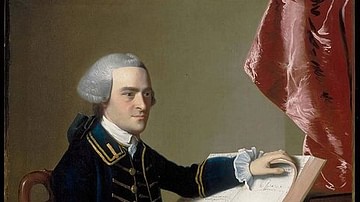
Definition
John Hancock
John Hancock (1737-1793) was a merchant, politician, and Founding Father of the United States, who helped lead the Patriot movement during the American Revolution (1765-1789). He served as president of the Second Continental Congress from...
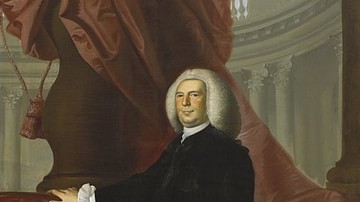
Image
Thomas Hancock
Thomas Hancock (1703-1764), a wealthy Boston merchant and founder of the firm House of Hancock; best known as the uncle of US Founding Father John Hancock. Oil on canvas portrait by John Singleton Copley, 1764-66.
Harvard Art Museums.
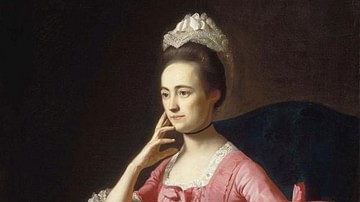
Image
Dorothy Quincy Hancock
Dorothy Quincy Hancock Scott (1747-1830), wife of US Founding Father John Hancock, oil on canvas portrait by John Singleton Copley, c. 1772.
Museum of Fine Arts, Boston.
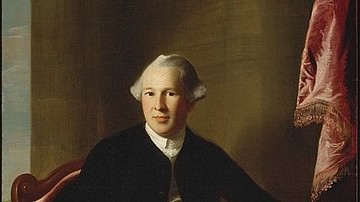
Definition
Joseph Warren
Doctor Joseph Warren (1741-1775) was a physician from Boston, Massachusetts, who became an important political leader of the Patriot movement during the early years of the American Revolution (c. 1765-1789). Known for dispatching Paul Revere...
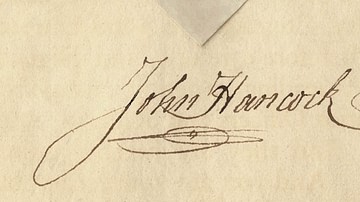
Image
John Hancock's Signature
The famous signature of US Founding Father John Hancock, printed on a letter; this signature famously appears on the US Declaration of Independence. Restored by Jim S., 15 September 2011.
Massachusetts Historical Society.
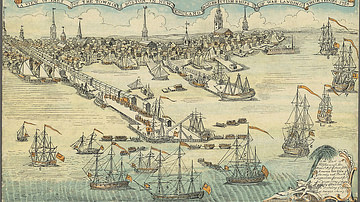
Definition
Townshend Acts
The Townshend Acts were a series of acts passed by the Parliament of Great Britain between 1767 and 1768 to tax and regulate the Thirteen Colonies of North America. When the colonists considered the acts an abuse of power and protested them...
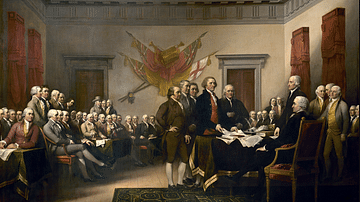
Definition
Second Continental Congress
The Second Continental Congress was the body of delegates that governed the Thirteen Colonies and, later, the United States during the American Revolutionary War. Between its first session in May 1775 and its disbandment in March 1781, the...
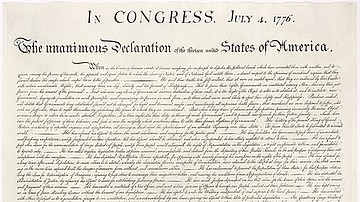
Article
Declaration of Independence
The Declaration of Independence is the foundational document of the United States of America. Written primarily by Thomas Jefferson, it explains why the Thirteen Colonies decided to separate from Great Britain during the American Revolution...
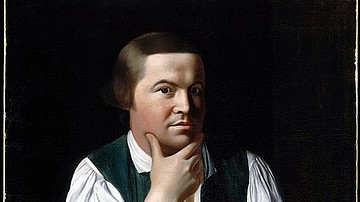
Definition
Paul Revere
Paul Revere (1735-1818) was an American silversmith born in the British colony of Massachusetts. He was an active member of the Sons of Liberty during the American Revolution (c. 1765-1789) and became a folk hero for his midnight ride in...
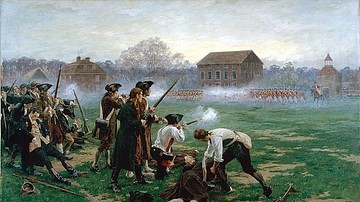
Article
Battles of Lexington and Concord
The Battles of Lexington and Concord were engagements fought between British regular soldiers and militia from the colony of Massachusetts on 19 April 1775. The British troops were on their way to seize military supplies stored in the town...